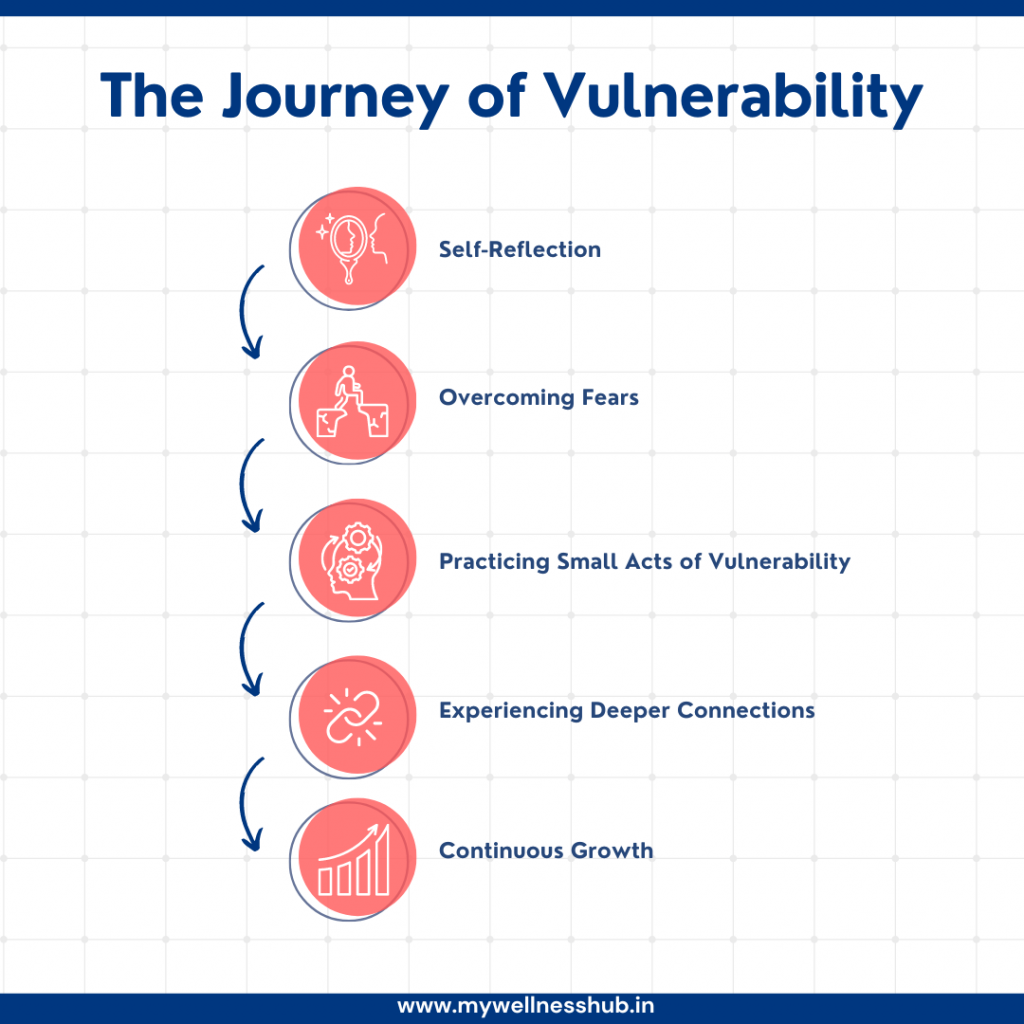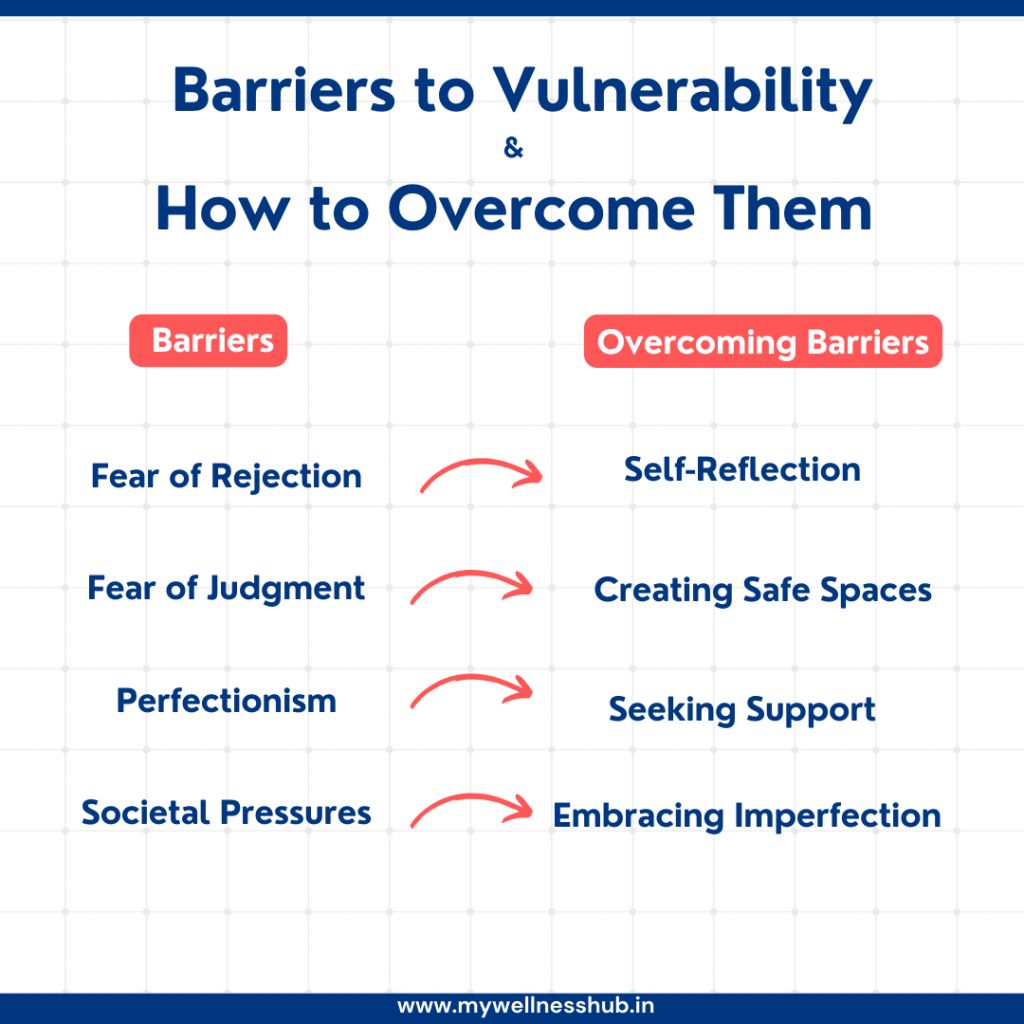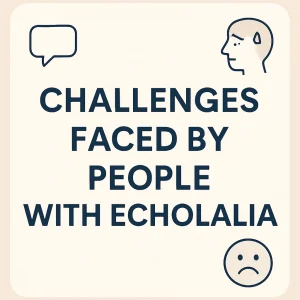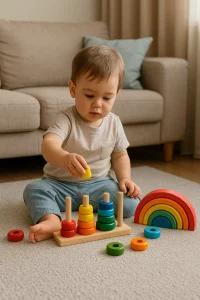The Importance of Vulnerability in Building Deep Connections
By Wellness Hub
Last Updated: July 30, 2024
In a world that often equates vulnerability with weakness, it’s time we redefine what it truly means to be vulnerable. Imagine, for a moment, the power of showing up as your authentic self, sharing your true thoughts and feelings without the fear of judgment. This act of bravery, this essence of being truly vulnerable, isn’t a sign of weakness but the ultimate strength. It’s about embracing the importance of vulnerability in creating genuine connections that enrich our lives.
In recent times, the fabric of our society and the individual challenges we face have underscored the necessity of these genuine connections more than ever. The global pandemic, social isolation, and the rapid shifts in our daily lives have not only transformed how we interact but have also highlighted our innate need for deeper, more meaningful relationships. Vulnerability, in this context, emerges not as an option but as a vital pathway to understanding and being understood.
Book Your Relationship Counselling Now

Defining Vulnerability in Personal Growth and Relationships
At its core, vulnerability is the courage to be oneself, with all one’s imperfections, fears, and desires, in the presence of others. It’s about letting down our guards and allowing ourselves to be seen, truly seen, by others. In the context of personal growth, vulnerability acts as a catalyst for self-discovery and transformation. It prompts us to confront our fears, embrace our flaws, and open ourselves to new experiences and learning.
In relationships, vulnerability is the bridge that connects two souls. It’s the foundation upon which trust, intimacy, and deep emotional bonds are built. When we share our true selves with someone else—our doubts, our dreams, our pains—we give them the opportunity to truly know us and, in return, to be truly known. This exchange, this mutual unveiling, is what cements lasting connections.
Dispelling the Myths: Common Misconceptions about Vulnerability
Vulnerability is a sign of weakness:
One of the most pervasive myths about vulnerability is that it signifies weakness. This couldn’t be further from the truth. Vulnerability requires immense strength and courage. It’s easy to wear a mask, to hide our true selves from the world. But it takes real strength to tear down these walls and show up authentically, especially when there’s no guarantee of how we’ll be received.
Vulnerability means oversharing:
Another common misconception is equating vulnerability with oversharing, with laying bare every thought and feeling for all to see. True vulnerability, however, is selective and intentional. It’s about opening up to those we trust and who matter to us, not a blanket reveal to everyone. It’s about depth, not breadth.
Vulnerability leads to hurt:
Many of us shy away from being vulnerable out of fear that it will open us up to being hurt. While vulnerability does involve risk—the risk of rejection, of misunderstanding, of hurt—it also opens the door to profound connection and love. By guarding ourselves too fiercely, we might avoid pain, but we also miss out on the richness of close, authentic relationships.
Comparing Vulnerability Myths vs. Reality
| Myth | Reality |
|---|---|
| Vulnerability is a sign of weakness | Vulnerability requires courage and is a sign of strength |
| Vulnerability means oversharing | True vulnerability is about sharing with intention and with those you trust |
| Being vulnerable will always lead to hurt | While vulnerability involves risk, it also opens the door to deeper connections and healing |
| Vulnerability is unnecessary in professional settings | Vulnerability can foster trust and innovation within teams |
| Only certain people need to practice vulnerability | Everyone can benefit from practicing vulnerability to enhance connections and personal growth |
The Role of Vulnerability in Deepening Connections
Diving deeper into the heart of vulnerability, let’s explore how this profound openness is not just beneficial but essential for crafting deeper, more meaningful connections. Drawing from both the science behind vulnerability and tangible real-life examples, we can begin to understand its powerful role in our lives.
The Science Behind Vulnerability and Connection
Brené Brown, a renowned researcher and storyteller, has been at the forefront of vulnerability research, uncovering its undeniable link to strong connections. According to Brown, vulnerability is the birthplace of love, belonging, joy, courage, empathy, and creativity. It’s where we find the magic that makes our relationships flourish. When we allow ourselves to be vulnerable, we send out a signal that we are open, authentic, and ready for genuine connection. This, in turn, invites others to do the same, creating a cycle of trust and intimacy that deepens our bonds.
Brown’s studies reveal that vulnerability is about showing up and being seen, about being honest with ourselves and others about our feelings, thoughts, and desires. It’s a risk, of course, because it means stepping into uncertainty, exposure, and emotional exposure. However, it’s this very risk that paves the way for the deepest connections we will ever experience.
Overcoming Barriers to Vulnerability
Understanding and overcoming these obstacles is a vital step toward embracing vulnerability fully and reaping its benefits in our relationships and personal growth.

Identifying Common Fears and Societal Pressures
The journey toward vulnerability is fraught with fears and societal pressures that can deter even the bravest of hearts. Among these, the fear of rejection and judgment looms large. Many worry that showing their true selves will lead to being misunderstood or ostracized. Societal norms often dictate a facade of perfection and strength, leaving little room for the messiness and authenticity that vulnerability demands. This creates a paradox where we crave deep connections yet are conditioned to hide the very parts of ourselves that could foster these bonds.
Strategies to Overcome These Barriers
Self-Reflection
The first step in overcoming the barriers to vulnerability is self-reflection. This involves a deep and honest look within to understand our fears and the societal expectations that influence our behavior. Asking ourselves why we’re afraid to be vulnerable and what we’re trying to protect helps in identifying the roots of our resistance. Through self-reflection, we can also discover the values and beliefs that truly matter to us, guiding our journey toward authenticity.
Small Acts of Openness
Rome wasn’t built in a day, and neither is the capacity for vulnerability. Starting with small acts of openness can pave the way for more significant leaps. This might mean sharing a personal story with a friend, expressing an unpopular opinion during a meeting, or simply admitting when we don’t have all the answers. These moments of openness, though seemingly minor, can significantly impact how we view vulnerability and our comfort level in embracing it.
Seeking Supportive Environments
Finding spaces where vulnerability is valued and encouraged can make a world of difference. Supportive environments, be it among friends, family, or communities like Wellness Hub, provide a safe haven where our true selves can be seen and accepted. In such spaces, vulnerability is not met with judgment but with empathy and understanding, reinforcing its importance and benefits.
Practicing Compassion
Finally, practicing compassion towards ourselves and others fosters an environment where vulnerability can thrive. Understanding that everyone faces fears and societal pressures reminds us that we’re not alone in our struggles. Compassion allows us to approach our vulnerabilities with kindness rather than criticism, making the journey less daunting.
Practicing Vulnerability in Daily Life
It’s about moving beyond surface-level engagements to foster genuine connections, be it with family, friends, colleagues, or even strangers. Here are some practical tips and insights into creating spaces that encourage openness and vulnerability in various aspects of life.
Tips for Opening Up in Relationships, Work, and Social Settings
In Relationships: Start with trust. Share something small yet personal to gauge the other person’s reaction and build from there. It could be as simple as expressing a fear or a dream you haven’t shared before. Listening actively and empathetically when your partner does the same can create a mutual sense of vulnerability.
At Work: Vulnerability in the workplace can foster a culture of trust and innovation. Begin by admitting when you don’t have all the answers or by asking for help. Acknowledging your mistakes and learning from them openly can encourage others to do the same, creating a supportive environment where creativity and learning flourish.
In Social Settings: Be the first to share a personal story or challenge you’ve faced when in social gatherings. This act can break the ice and encourage others to share their experiences, leading to more meaningful and connected conversations beyond the usual small talk.
The Importance of Creating a Safe Space for Others to Be Vulnerable
Creating a safe space for vulnerability means establishing an environment of non-judgment, empathy, and support. It’s about showing others that their feelings and experiences are valid and important. Here are a few ways to cultivate such spaces:
Practice Active Listening: Give your full attention when someone is sharing with you. Avoid the urge to offer unsolicited advice or judgments. Sometimes, just being heard is all someone needs to feel supported and understood.
Express Empathy: Try to understand and feel what the other person is going through. Empathy builds bridges and deepens connections, making it easier for people to open up.
Respect Privacy: Treat shared information with confidentiality and respect. Knowing that their vulnerability will not be exposed beyond their comfort zone encourages people to share more openly.
Encourage, Don’t Force: Everyone has their own pace when it comes to being vulnerable. Encourage openness by being open yourself, but don’t force others to share if they are not ready. Patience is key.
Vulnerability Practices for Different Settings
| Setting | Tips for Vulnerability |
|---|---|
| Relationships | Share your feelings openly without fear of judgment. Ask for what you need emotionally. |
| Work | Admit when you don’t know something. Share your ideas, even if they’re not fully formed. |
| Social Settings | Initiate conversations with personal stories or questions, allowing others to share their experiences too. |
| Personal Growth | Reflect on your fears and desires in a journal. Practice saying “I feel” statements to yourself. |
| Online Communities | Participate in forums or groups by sharing your experiences or support, even if it feels slightly uncomfortable at first. |
The Transformative Power of Vulnerability
Embracing vulnerability can lead to profound personal transformation and significantly enhance mental health and well-being. Through the lens of personal stories and the tangible benefits vulnerability brings, it becomes clear why opening ourselves up is worth the courage it demands.
Personal Stories of Transformation Through Vulnerability
Anika’s Journey: Anika, once a steadfast believer in keeping her emotions under a strict lock, found her world transformed when she decided to open up about her struggles with anxiety. Sharing her story with a small group not only lifted a weight off her shoulders but also paved the way for deeper friendships and support she never knew she needed. Her vulnerability led to a stronger sense of community and belonging that fundamentally changed how she viewed herself and her struggles.
Rohan’s Revelation: For Rohan, vulnerability meant admitting his fear of failure in his career. This confession, made during a team retreat, didn’t result in the judgment he feared but rather in an outpouring of support and shared stories of similar fears from his colleagues. This moment of honesty transformed his work environment into a space of mutual support and understanding, boosting his confidence and job satisfaction.
The Benefits of Vulnerability for Mental Health and Wellbeing
Enhanced Connection: Vulnerability allows us to form deeper connections with others, reducing feelings of isolation and loneliness. It’s in our nature to seek connection, and vulnerability is the key that unlocks genuine relationships.
Increased Self-Awareness: Being vulnerable requires introspection and honesty about our feelings and desires, leading to greater self-awareness. This self-knowledge is crucial for personal growth and emotional intelligence.
Reduced Stress: Hiding our true selves and our emotions can be exhausting. Opening up and being authentic can alleviate the stress and anxiety that comes with pretense and perfectionism.
Improved Coping Skills: Sharing our struggles and listening to others can provide new perspectives and coping strategies. Understanding that we’re not alone in our experiences can make our burdens feel lighter and more manageable.
Greater Resilience: Every time we choose vulnerability, we build resilience. Facing our fears and exposing our true selves can strengthen our emotional resilience, making us better equipped to handle future challenges.
Vulnerability and Wellness Hub
As we journey through the nuanced landscape of vulnerability, Wellness Hub stands as a beacon of support and guidance. Embracing vulnerability is not just an act of courage but a step towards deeper self-discovery and connection. At Wellness Hub, we are dedicated to supporting you on this transformative journey, providing a range of services and resources designed to facilitate authentic connections and personal growth.
How Wellness Hub Supports Your Journey Towards Embracing Vulnerability
Personalized Counseling: Recognizing that each individual’s journey towards vulnerability is unique, Wellness Hub offers personalized counseling sessions. Our experienced counselors provide a safe, confidential space where you can explore your thoughts, feelings, and fears at your own pace. Through these sessions, you can gain insights and strategies to navigate the challenges of opening up, ensuring that you feel supported every step of the way.
Know more: Relationship Counselling Online
Conclusion
As we wrap up our journey through the world of vulnerability, we’ve learned that being open and honest about our feelings isn’t a sign of weakness but a step towards building stronger, more genuine connections. We’ve seen through various stories how sharing our true selves can change our relationships and make us happier. It’s all about taking small steps towards being more open, which might seem scary at first but brings us closer to the rich, meaningful connections we all crave.
If you’re feeling ready to take that first step but aren’t sure how, remember, Wellness Hub is here to help. With resources like personal counseling, support groups, and workshops, there’s a whole community waiting to support you on your journey towards being more open and connected. Why not check out Wellness Hub and see how embracing vulnerability can enrich your life? Let’s take this step together, towards a life full of deeper connections and authentic living.
Frequently Asked Questions:
1. What is vulnerability, and why is it important?
Vulnerability involves openly expressing your thoughts, feelings, and experiences without fear of judgment. It’s crucial because it lays the foundation for building authentic and deep connections with others, enhancing our relationships and contributing to our overall well-being.
2. How can vulnerability strengthen relationships?
Vulnerability allows individuals to share their true selves, fostering a deeper understanding and empathy between people. This honesty and openness lead to stronger trust and a more profound emotional connection, strengthening relationships.
3. What are some common barriers to vulnerability?
Many people fear vulnerability due to concerns about rejection, judgment, or appearing weak. Societal pressures to appear strong and independent can also make it challenging to open up and be vulnerable with others.
4. How can I start practicing vulnerability in my daily life?
Begin by sharing small, personal things with trusted friends or family members. Listen actively and empathetically when others open up, and gradually, you can share more as you feel comfortable. Remember, it’s about taking small steps and being kind to yourself throughout the process.
5. Can vulnerability improve mental health?
Yes, embracing vulnerability can significantly enhance mental health. It reduces the stress of hiding your true self, encourages self-acceptance, and helps build a support network, all of which are beneficial for mental well-being.
6. How does Wellness Hub support my journey towards embracing vulnerability?
Wellness Hub offers personalized counseling, workshops, and support groups focused on vulnerability and building deep connections. These resources provide a safe space to explore vulnerability, learn practical ways to open up, and connect with others who share similar experiences.
7. What if I face negative reactions when I try to be vulnerable?
While not everyone will respond positively to vulnerability, it’s important to remember that your openness is a strength, not a weakness. Focus on building connections with those who appreciate and reciprocate your vulnerability. Wellness Hub’s community and resources can offer support and guidance in navigating these situations.
8. Is it possible to be too vulnerable?
Yes, it’s important to balance vulnerability with boundaries. Being vulnerable means sharing your feelings and experiences with those who have earned your trust, not necessarily with everyone. It’s about being authentic in a way that feels safe and respectful to your emotional well-being.
9. How can vulnerability impact workplace relationships?
Vulnerability in the workplace can lead to stronger teamwork, better communication, and a more supportive environment. When leaders and team members are open about challenges and mistakes, it fosters trust and encourages everyone to contribute their best, knowing that their vulnerability will be met with support rather than judgment.
10. Can vulnerability help in overcoming personal challenges?
Absolutely. Being open about your struggles can help you receive the support and encouragement you need to face personal challenges. Vulnerability allows others to offer help, advice, or simply a listening ear, which can make difficult times more manageable and less isolating.
About the Author:
Prapoorna Mangalampalli
M.Sc., M.A., (Dual Masters in Psychology & English) – Counselor (6+ years of experience)
Prapoorna armed with a passionate dedication fueled by dual Master’s degrees in Psychology and English, Prapoorna sheds light on and elevates human experiences. Over 6+ years of experience fuel her insightful approach to counseling, offering profound empathy and guidance across diverse areas like online, marital, relationship, child, family, and career counseling.
At Wellness Hub, she thrives in a team environment that values innovation, compassion, and achieving results for their clients.
Connect with Prapoorna to learn how she can help you or your loved one find their voice and build a brighter future.
Book your Free Consultation Today
Parent/Caregiver Info:
Client’s Details:
* Error Message








